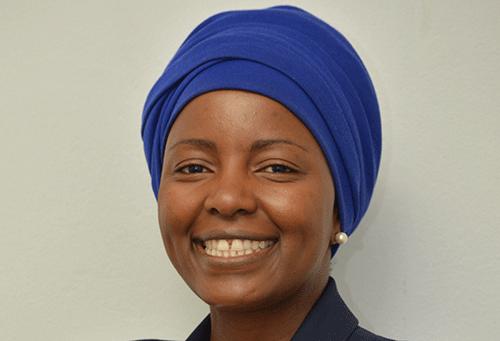Deputy minister for marginalised communities Royal /Ui/o//oo has lamented the exclusion of marginalised groups’ mother tongues from school curricula.
He said their culture and traditions; languages should be distinctively documented and preserved like any other languages in the country.
He was speaking during the celebration of the international day of the World’s Indigenous Peoples held in Gobabis in the Omaheke region on Tuesday.
“It is very disheartening 32 years after independence that all the three marginalised communities groups’ (San, Ovatue, and Ovatjimba) own mother tongues are not featured anywhere in the books or school syllabus,” /Ui/o//oo said.
“In schools from early childhood development stage, primary and secondary schools to tertiary level, our children are taught in other languages which are ‘recognised and documented’,” he added.
He said the languages of many indigenous minorities have been lost, and the same with traditional names, and names of plants, animals and lifestyles.
“We need to understand the value of language in ensuring cultural knowledge preservation, not only as the marginalised communities, but as Africans,” he said.
He said although the San languages are regarded as one, they have unique varieties that should be documented and preserved.
According to /Ui/o//oo, in historical achieve, the marginalised communities have continuously been labelled as the San, Ovatue or Ovatjimba throughout history, and until such a time they are the authors, photographers, and students of their own knowledge, more than just their names will be lost.
“We cannot continue being represented by others and letting them tell our stories, and we will only represent ourselves if we stand up and fight for our rights and make every Namibian citizen understand who we are through education, political participation and inclusion in governance.”
/Ui/o//oo said unless the indigenous minorities are equipped with knowledge of their rights, and access to information that will aid in their development and in addition to education, governance representation and political participation; cultural appropriation and exploitation will continue and the communities with the richest natural resources and cultures will be left destitute.
Furthermore, he said it is unacceptable that there are still children from marginalised communities in the streets while the rest of the country’s children are in school.
“It is unacceptable that the majority of the marginalised communities’ girl children fall prey to teenage pregnancies, although this is a challenge to all,” he added.
It is equally unacceptable, /Ui/o//oo said, that parents do not make extra efforts to send their children back to school.
“It is further unacceptable that children from marginalised communities are kidnapped or trafficked and brought to cities and towns to work as domestic workers without access to education.”
– ktjitemisa@nepc.com.na



